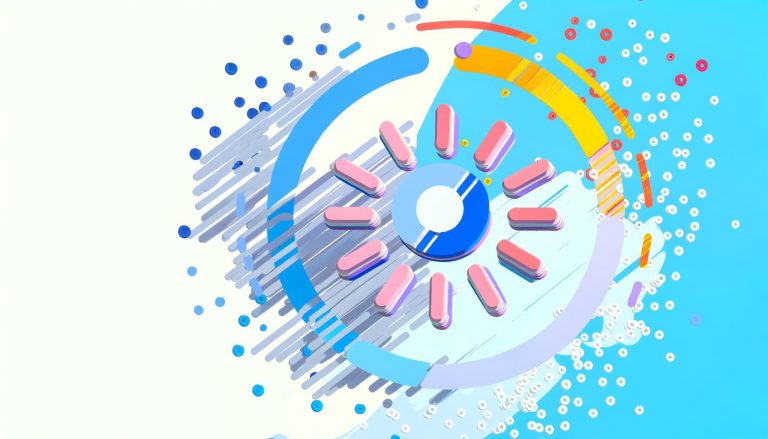In recent years, the fusion of Artificial Intelligence (AI) and positive psychology has shown tremendous promise in enhancing individual well-being and life satisfaction. With AI’s ability to analyze vast arrays of data and positive psychology’s focus on promoting well-being through scientifically backed interventions, the synergy of these two fields can not only boost happiness but also provide personalized, actionable strategies for personal growth. In this article, we explore how AI and positive psychology interventions can be harnessed to improve happiness and life satisfaction.
Understanding AI in Positive Psychology
AI, or Artificial Intelligence, involves the creation of systems capable of performing tasks that typically require human intelligence. These tasks range from simple data analysis to complex decision-making processes. Positive psychology, on the other hand, is the scientific study of what makes life worth living, focusing on strengths, virtues, and factors contributing to individual and community well-being.
The Synergy of AI and Positive Psychology
Combining AI with positive psychology involves leveraging data analytics, machine learning, and natural language processing to create tailored interventions that promote well-being. Here are some ways AI is integrated into positive psychology:
- Personalization: By analyzing user data, AI can tailor interventions to individual needs, preferences, and behaviors, making positive psychology practices more effective.
- Scalability: AI allows for the widespread dissemination of positive psychology interventions, reaching a broader audience than traditional methods.
- Real-time Feedback: AI provides instant feedback and support, allowing individuals to track their progress and adjust their strategies accordingly.
Key AI-Driven Positive Psychology Interventions
Several AI-driven interventions have been developed to boost happiness and life satisfaction. These interventions typically focus on key areas such as gratitude, mindfulness, and strengths-based approaches. Some notable examples include:
- Gratitude Journals: AI-powered apps can prompt users to reflect on and document things they are grateful for regularly, fostering a sense of appreciation and well-being.
- Mindfulness Practices: AI-driven platforms can guide users through mindfulness exercises, helping them stay present and manage stress more effectively.
- Strengths Assessment: AI tools can assess an individual’s strengths and provide personalized recommendations for leveraging these strengths in daily life.
Benefits of AI and Positive Psychology Interventions
The integration of AI with positive psychology offers several benefits that contribute to overall happiness and life satisfaction:
Enhanced Personalization
One of the significant advantages of AI-driven positive psychology interventions is the ability to provide highly personalized experiences. These personalized interventions consider an individual’s unique preferences, habits, and goals, thereby enhancing their effectiveness.
Quantifiable Outcomes
AI systems can track and quantify the outcomes of positive psychology interventions. By analyzing data from various sources, AI can provide insights into what works best for different individuals, allowing for continuous improvement of intervention strategies.
Accessibility and Convenience
With AI-powered platforms, positive psychology interventions become more accessible and convenient. Users can engage with these interventions anytime, anywhere, fitting them seamlessly into their daily routines.
Consistent and Persistent Support
AI-driven positive psychology tools provide consistent and persistent support. Unlike human practitioners who may have limited availability, AI can offer round-the-clock assistance, ensuring ongoing engagement and progress.
Fostering Self-Awareness and Reflection
AI tools encourage self-awareness and reflection, crucial elements for personal growth. By providing insights and feedback, these tools help individuals understand themselves better and make informed decisions to improve their well-being.
Practical Tips for Utilizing AI and Positive Psychology Interventions
Start with a Reliable App
Choose a reliable app that integrates AI and positive psychology principles. Look for features such as mood tracking, personalized recommendations, and evidence-based exercises.
Consistency is Key
Engage with the AI-driven interventions consistently. Regular practice is crucial for forming new habits and sustaining benefits over the long term.
Set Realistic Goals
Set realistic and achievable goals. Use the AI tool to break down these goals into manageable steps and monitor your progress regularly.
Stay Open to Feedback
Be open to the feedback provided by the AI-driven platform. Use this feedback to make informed adjustments to your strategies and practices.
Embrace a Growth Mindset
Adopt a growth mindset, understanding that improvement takes time and effort. Celebrate small victories and learn from setbacks, using them as opportunities for growth.
Engage in Community Activities
Many AI-driven positive psychology platforms offer community features. Engaging with a supportive community can provide additional motivation and a sense of belonging.
Combine with Traditional Methods
While AI-driven interventions are powerful, they can be even more effective when combined with traditional methods such as therapy, counseling, and self-help literature.
Conclusion
The integration of AI with positive psychology holds significant potential for enhancing individual happiness and life satisfaction. By providing personalized, scalable, and real-time interventions, AI tools can make positive psychology practices more accessible and effective. From gratitude journals to strengths assessments, these AI-driven interventions offer numerous benefits, including personalized experiences, quantifiable outcomes, and consistent support.
To get the most out of these AI and positive psychology interventions, it’s essential to choose reliable apps, engage consistently, set realistic goals, and embrace a growth mindset. By doing so, individuals can foster self-awareness, reflection, and personal growth, ultimately leading to greater well-being and life satisfaction.
As we continue to explore the potential of AI in positive psychology, platforms like the Zenora App could be valuable tools. By offering features such as mood and habit tracking, personalized recommendations, and goal setting, Zenora helps users thrive and achieve happiness in their daily lives.





